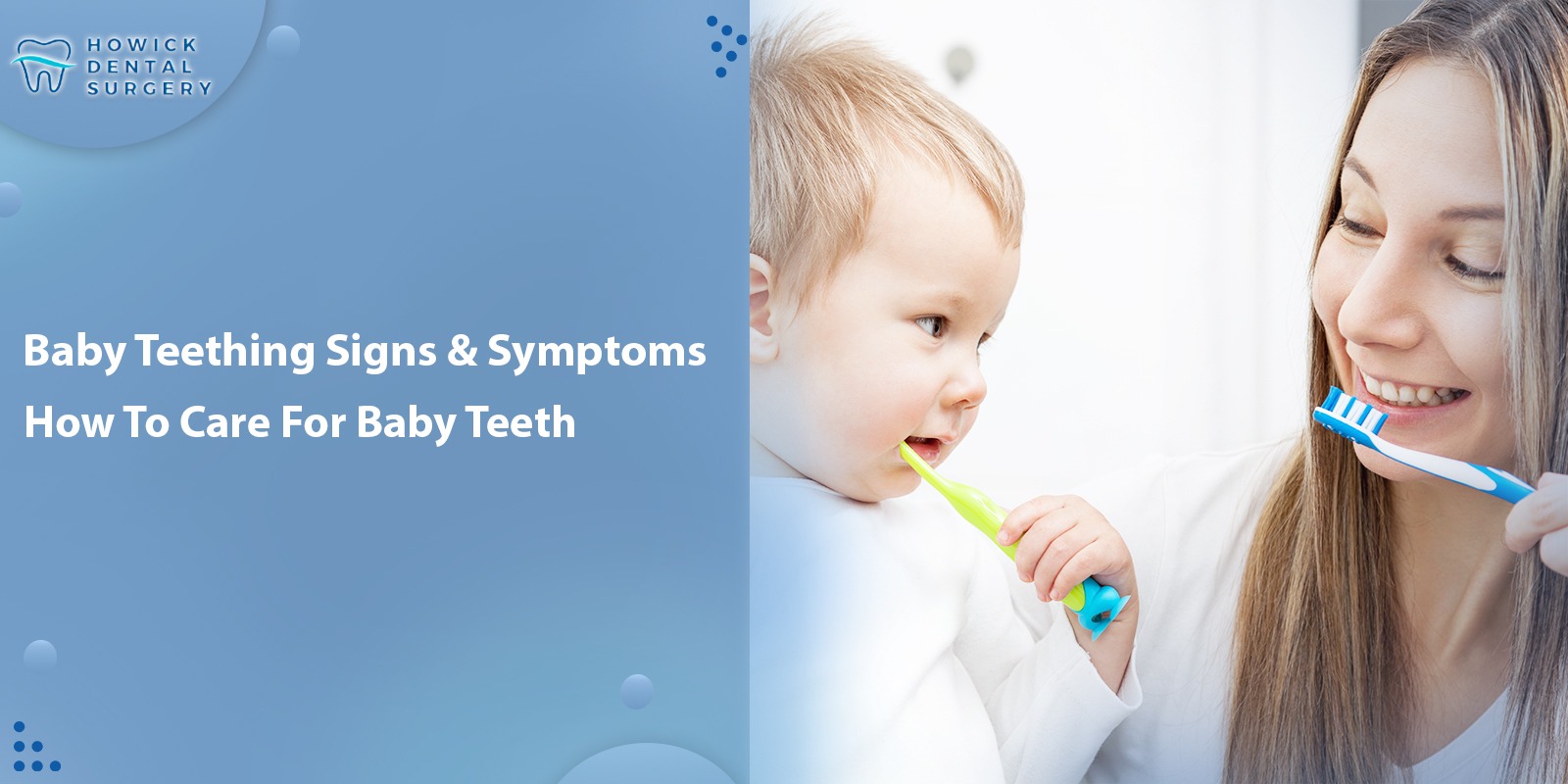Teething is an exciting milestone for every whānau in New Zealand, marking the start of your baby’s journey to a healthy smile. But it can also be a challenging time, as babies often feel discomfort while their first teeth push through the gums. Knowing what signs to look for, how to soothe your pēpi, and how to care for those tiny teeth early on can make a big difference.
Common Signs & Symptoms of Teething
Every baby is different, but teething usually starts around 6 months (sometimes earlier, sometimes later). By about 3 years, most children will have a full set of 20 primary teeth. Some common teething signs include:
- Drooling – Increased saliva is very common, sometimes leading to a mild rash around the chin.
- Chewing on objects – Babies often gnaw on toys, fingers, or anything they can reach to relieve gum pressure.
- Irritability or fussiness – Sore gums can make your baby unsettled, especially at night.
- Swollen or tender gums – You may notice slight redness or puffiness where a tooth is about to erupt.
- Changes in eating or sleeping – Some babies feed less or have disrupted sleep during teething.
- Rubbing ears or cheeks – Discomfort from the gums can radiate, causing babies to tug at their ears or cheeks.
- Important: Fever, diarrhoea, or severe illness are not normal teething symptoms. If your baby has these, consult your GP or Plunket nurse, as they may indicate another health concern. (Healthify NZ)
How to Comfort a Teething Baby
Teething can’t be stopped, but there are safe ways to ease your baby’s discomfort:
- Teething toys & rings – Chilled (not frozen) teething rings are soothing to chew.
- Cool washcloth – A clean, damp cloth chilled in the fridge can be gently chewed for relief.
- Massage gums – Using a clean finger, gently rub your baby’s gums to ease pressure.
- Extra comfort – Cuddles, distraction with play, or calming routines help ease irritability.
- Over-the-counter relief – In some cases, pharmacists in NZ may recommend pain relief (like infant paracetamol) but always check with your doctor first.
Avoid using gels that contain benzocaine or aspirin, as these are not recommended for babies.
Caring for Baby Teeth in NZ
Looking after baby teeth is just as important as caring for adult teeth. Decay in primary teeth can affect speech, nutrition, and even the development of permanent teeth. In New Zealand, free basic dental care is available for children up to age 18 through the Community Oral Health Service. (Ministry of Health NZ)
Here’s how to start:
- Begin brushing early – As soon as the first tooth appears, brush twice daily with a soft baby toothbrush and a smear of fluoride toothpaste (about the size of a grain of rice).
- Limit sugary drinks and snacks – Offer water and milk instead of juice or fizzy drinks.
- Avoid bottle in bed – Milk or formula left in the mouth overnight can cause early childhood caries (“bottle caries”).
- Schedule a dental check-up – The NZ Dental Association recommends taking your child for their first dental visit by age one, or within six months of their first tooth appearing.
- Make oral care routine and fun – Turn brushing into a playful activity, sing songs, or brush together.
Teething is a natural, though sometimes challenging, stage of your baby’s growth. Recognising the signs, soothing discomfort safely, and establishing good oral care habits early will set your child up for a lifetime of healthy smiles.
At Howick Dental Surgery, we welcome young families and are here to guide you through every stage of your child’s dental journey — from their very first tooth to their teenage years.


Leave a Reply